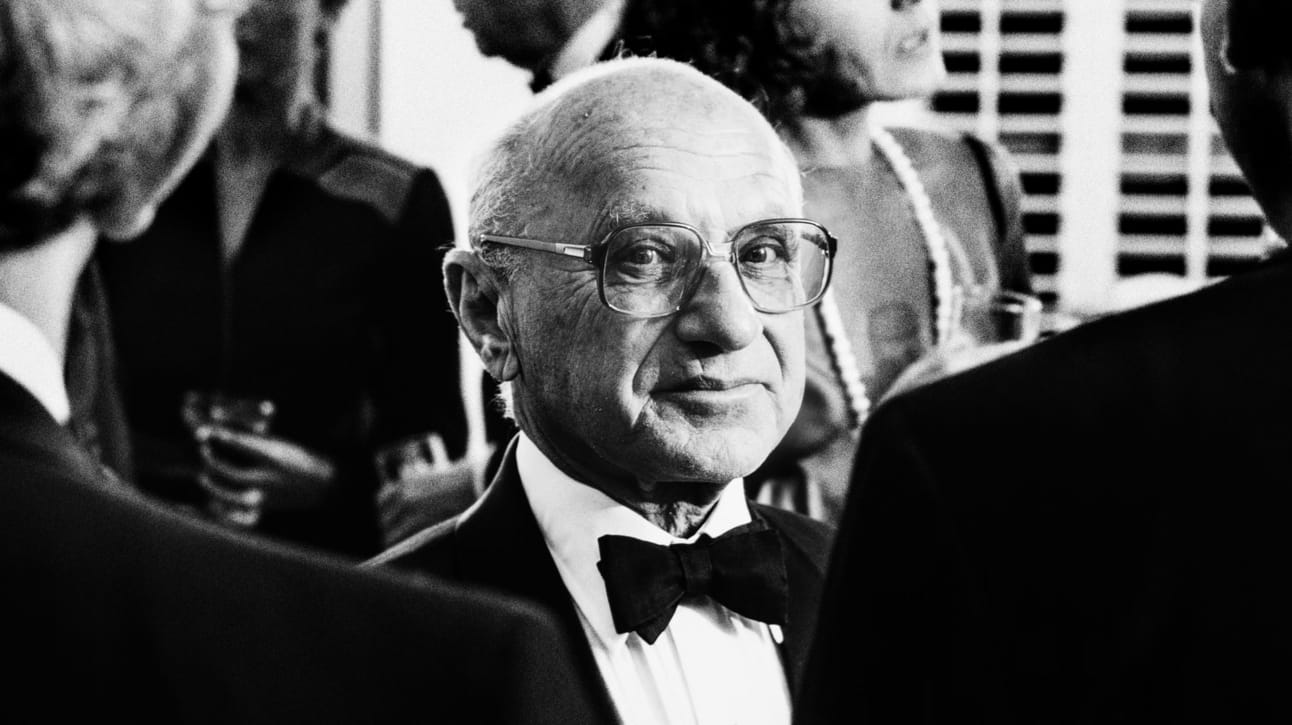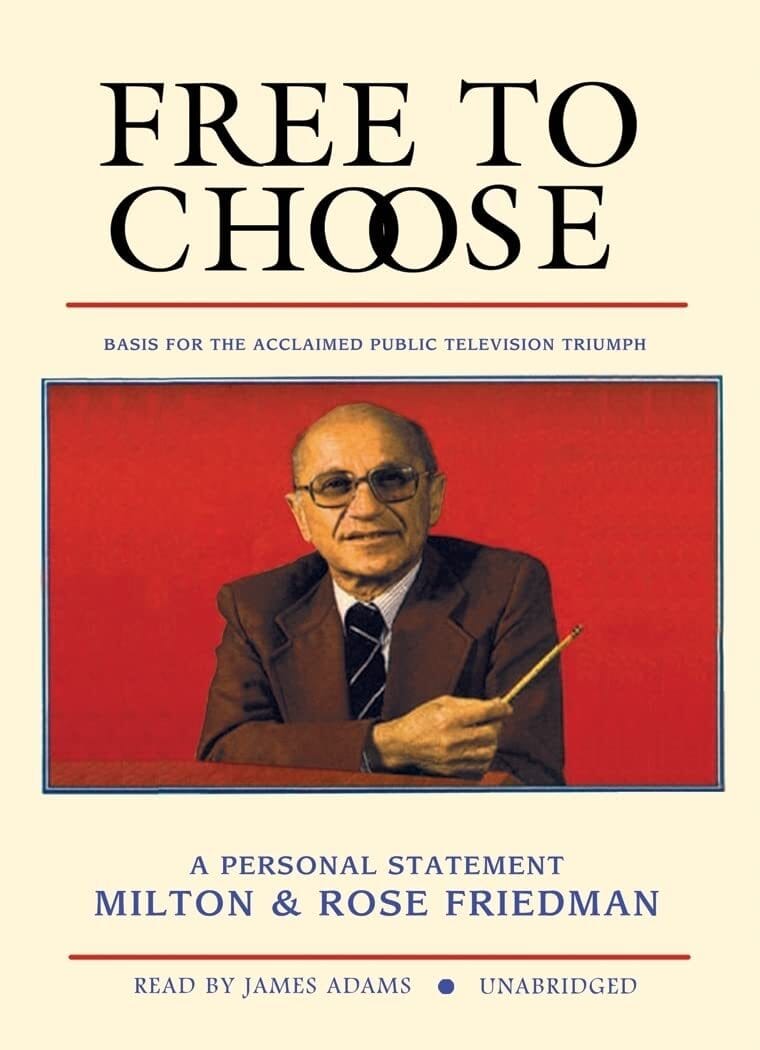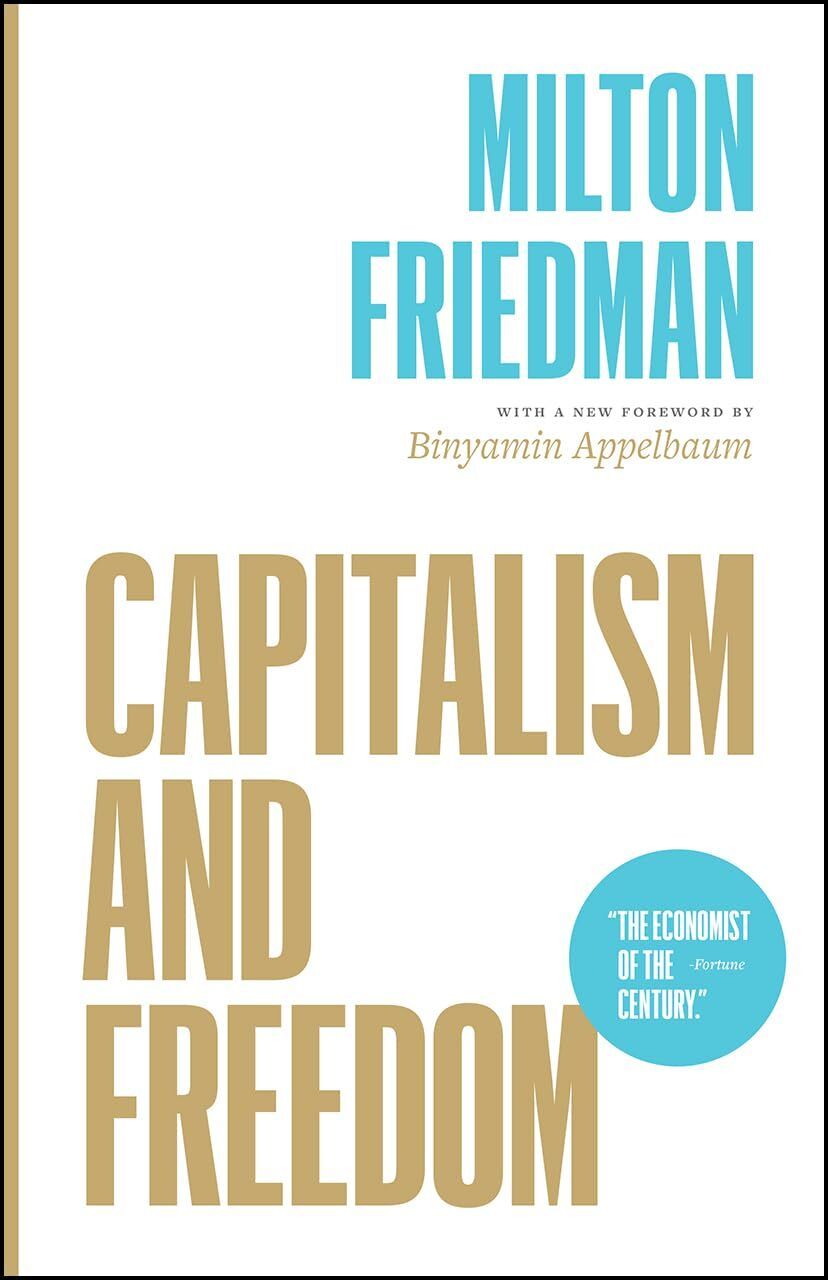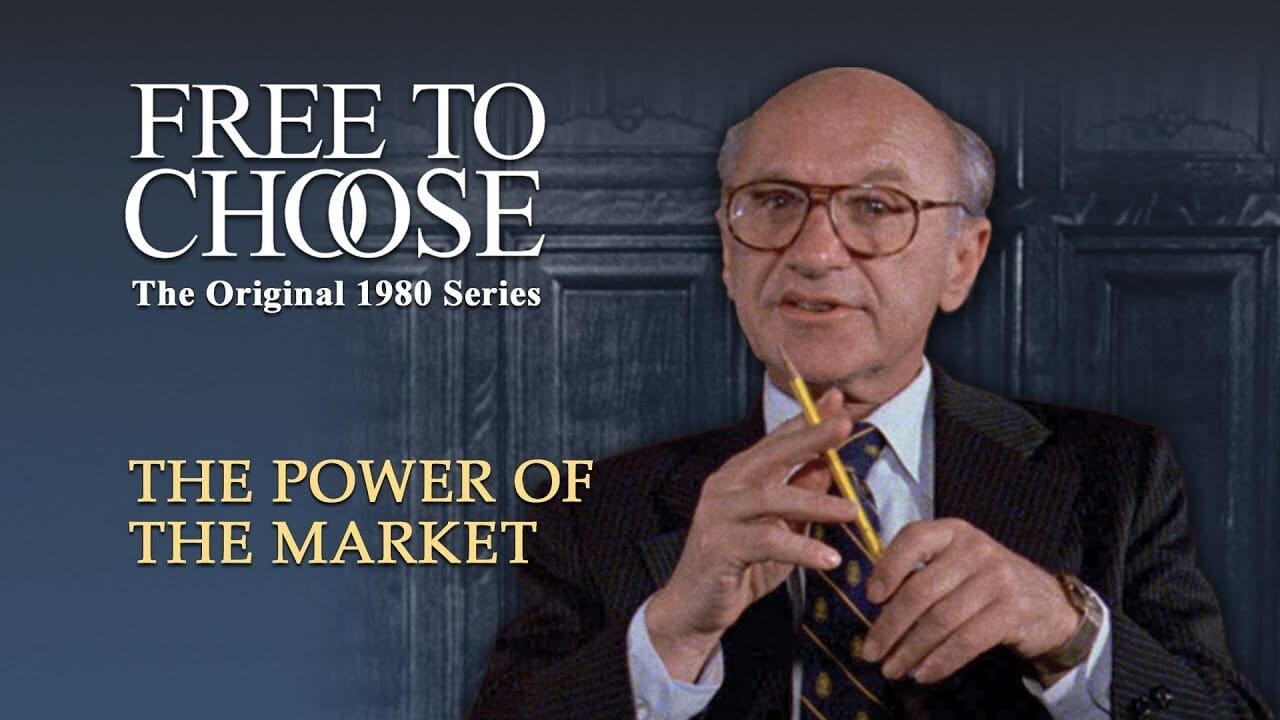- The Weekly Mensch
- Posts
- The Weekly Mensch: Milton Friedman
The Weekly Mensch: Milton Friedman
Redefining freedom through challenging convention and distilling enduring truths
Us in a Nutshell
We are passionate about the lives, the impact, and the experience of Jewish baby boomers who have changed our world. From finance to the arts, we write about the stories of contemporary heroes who — significantly and meaningfully — changed the face of their respective industries, often starting with nothing but a legacy of exile. We tell their stories for the timeless lessons of intelligence, ethics, and resilience they underline. And we also share some fun anecdotes! Nathan Tob is a fourth-year student at the Queen Mary University of London. He studies Economics, Finance, and Management. Davy Sokolski is a third-year student at Columbia University in New York. He studies International Political Economy.
What is a Mensch?
Leo Rosten defines mensch as “someone to admire and emulate, someone of noble character.” Dr. Saul Levine writes in Psychology Today that a mensch’s personality characteristics include decency, wisdom, kindness, honesty, trustworthiness, respect, benevolence, compassion, and altruism.
Milton’s Rapid Bio

Credit: The Atlantic
Milton Friedman, born on July 31, 1912, in Brooklyn, New York, was the youngest child of Sarah and Jeno Saul Friedman, Jewish immigrants from what is now Ukraine. Raised in Rahway, New Jersey, his early years were shaped by financial hardship. His father ran a small dry goods store, and after his passing when Milton was just 15, the family faced economic uncertainty. This experience deeply influenced his lifelong interest in economics and the role of free markets in creating opportunity. Despite his family’s modest means, Friedman excelled academically, earning a scholarship to Rutgers University, where he studied mathematics and economics. Encouraged by his professors, he pursued graduate studies at the University of Chicago, where he met Rose Director, his future wife and intellectual partner. He later completed his Ph.D. at Columbia University in 1946 after wartime work in government research.
Friedman’s academic career began at the University of Chicago, where he became a leading figure in the Chicago School of Economics. He revolutionized economic thought by challenging Keynesian principles. His groundbreaking work advocated for monetarism, the idea that controlling the money supply was the key to managing inflation and stabilizing economies. In 1962, he published Capitalism and Freedom, arguing that economic freedom was inseparable from political freedom. This book laid the ideological groundwork for policies that would later influence world leaders.
Beyond academia, Friedman became one of the most influential public intellectuals of the 20th century, translating complex economic theories into accessible ideas. His PBS series Free to Choose (1980), co-created with Rose, made his philosophy mainstream, presenting free-market capitalism as the engine of prosperity. His ideas influenced policymakers worldwide, from Ronald Reagan’s economic policies in the U.S. to Margaret Thatcher’s market reforms in the U.K. He also played a controversial role in advising Chile’s economic restructuring under Augusto Pinochet, a subject of heated debate in his legacy.
Friedman was awarded the Nobel Prize in Economic Sciences in 1976 for his work on consumption analysis, monetary policy, and economic stabilization. His theories shaped the transition of China’s economy toward market-oriented reforms and helped fuel the rise of global capitalism in the late 20th century.
Later in life, Friedman focused on philanthropy and education reform, founding the Milton and Rose D. Friedman Foundation for Educational Choice, which promoted school vouchers and market-driven education reform. He remained a tireless advocate for free markets, individual liberty, and limited government until his passing on November 16, 2006, at the age of 94. His legacy remains one of the most debated in modern economics, yet few have had a more profound impact on economic policy and public discourse.
Milton’s Life Lessons
1. Freedom and responsibility go hand in hand
Milton Friedman championed the idea that freedom isn’t just about having opportunities—it’s about taking responsibility. He believed that individuals should have the liberty to make their own choices, whether in markets, education, or life itself, but they must also be accountable for the consequences of those choices. One of his most well-known arguments was for school vouchers, where he advocated that parents should have the freedom to choose the best education for their children while also bearing the responsibility of making informed decisions. But this wasn’t just a policy stance; it was a personal philosophy. Friedman believed that societies thrive when individuals take ownership of their actions rather than relying on external forces to shape their outcomes. As he famously put it, “A society that puts equality before freedom will get neither. A society that puts freedom before equality will get a high degree of both.” His message was clear: freedom is not just a right—it’s a responsibility.
Success isn’t granted; it’s built through ownership of choices and outcomes. The most successful individuals don’t wait for permission or rely on safety nets—they take initiative, adapt, and accept the weight of their decisions. True freedom is not just about breaking barriers; it’s about having the discipline to make choices that lead to meaningful, lasting impact. Societies and individuals alike progress when they embrace both their liberty and their duty to act wisely.
2. Challenge the status quo—even when it’s unpopular
Milton Friedman never shied away from questioning conventional wisdom. At a time when government intervention in the economy was widely accepted, he challenged the dominant Keynesian approach, advocating for free markets, limited government, and individual choice. His ideas were met with fierce resistance—he was labeled radical, controversial, even dangerous—but he never backed down. In the 1970s, as inflation destabilized global economies, Friedman argued that inflation was always a monetary phenomenon, contradicting prevailing economic thought. Many policymakers dismissed him—until central banks eventually adopted his monetary policies and successfully tamed inflation, proving him right. His willingness to stand firm against criticism reshaped global economics, influencing tax reforms, deregulation, and privatization. As he once said, “Only a crisis—actual or perceived—produces real change. When that crisis occurs, the actions that are taken depend on the ideas that are lying around.” His belief in challenging the status quo didn’t just make waves—it changed the course of economic history.
Progress doesn’t come from following the crowd—it comes from questioning it. True impact comes from pushing boundaries and daring to think differently. Challenging deeply ingrained beliefs requires conviction, resilience, and the willingness to stand alone. Many of history’s greatest breakthroughs—from entrepreneurship to social change—began with individuals who refused to accept the way things were. Those who shape the future are the ones who challenge the present, even when it’s unpopular.
3. The most powerful ideas are the simplest
Milton Friedman had a rare ability to strip away complexity and make economics understandable. While others buried ideas in technical jargon, he distilled profound economic principles into simple, memorable concepts. His most famous phrase—"There’s no such thing as a free lunch"—was a fundamental reminder that every policy, every decision, and every benefit comes with a cost. His advocacy for free markets wasn’t built on convoluted theories but on a single, straightforward principle: when individuals are free to make their own choices, society as a whole prospers. Friedman’s simplicity wasn’t a limitation—it was his greatest strength. His 1980 television series Free to Choose explained economic concepts in a way that resonated with everyday people, shaping public opinion and influencing policymakers. His argument for school vouchers, rooted in the simple idea that competition improves quality, revolutionized education reform. His call for monetary discipline, based on the basic logic that printing money leads to inflation, reshaped central banking policies worldwide.
Complexity often hides truth, while simplicity reveals it. The most powerful ideas are those that can be understood and applied by everyone—not just experts. Success comes from breaking things down to their essence and focusing on what truly matters. The ability to take a big idea and make it clear, actionable, and impactful is what separates good thinkers from great leaders. Sometimes, the simplest insight is the one that changes everything.
The Quote of The Week
“One of the great mistakes is to judge policies and programs by their intentions rather than their results”



Reply